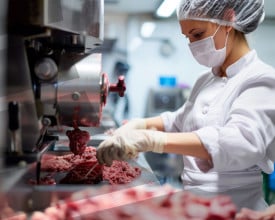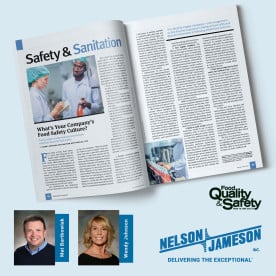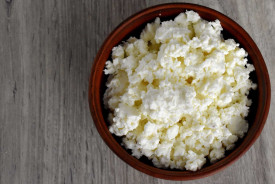 Handwashing is a front line of defense when it comes to food safety. It is also a commonly misunderstood practice that deserves some careful attention, as seemingly self-apparent as it might appear.
Handwashing is a front line of defense when it comes to food safety. It is also a commonly misunderstood practice that deserves some careful attention, as seemingly self-apparent as it might appear.
The Mayo Clinic states that “frequent hand-washing is one of the best ways to avoid getting sick and spreading illness,” and “offers great rewards in terms of preventing illness. Adopting this simple habit can play a major role in protecting your health.” In the food industry, proper handwashing is a practice that can keep both your customers and your employees safe and healthy. For many folks, there are many misconceptions about handwashing that are out there because of its supposedly obvious nature. The Center for Disease Control recommends the following as standard protocol.
See how this compares to your ideas about proper handwashing:
• Wet your hands with clean, running water (warm or cold) and apply soap.
• Rub your hands together to make a lather and scrub them well; be sure to scrub the backs of your hands, between your fingers, and under your nails.
• Continue rubbing your hands for at least 20 seconds. Need a timer? Hum the "Happy Birthday" song from beginning to end twice.
• Rinse your hands well under running water.
• Dry your hands using a clean towel or air dry them.
Though it may be strange for visitors to your operation to hear employees humming “Happy Birthday” throughout the facility, consider it the sound of properly ensuring enough time to effectively combat germs and thus, avoid contamination of the final product.
Perhaps you many think that your facility has ensured extra safeguards via the use of hand sanitizers and/or protective gloves. The CDC points out that the use of hand sanitizers is encouraged but sanitizers do not kill all germs and that they are not an effective way of dealing with hands that are “visibly dirty.” When used in combination with a good handwashing program, these sanitizers are an essential part of a proper hygiene program in your facility. Finally, to borrow some advice from the medical community, The Association for Professionals in Infection Control and Epidemiology stresses that handwashing is important between wearing gloves throughout the day as well since, “Gloves may become perforated and bacteria can multiply rapidly on gloved hands.”
Calling some attention to these points in your operation may seem blaringly obvious to your coworkers/employees. However, a little attention and a quick refresher on Handwashing 101 can help ensure that a simple but remarkably effective food safety and personal health prevention tool is in place and in use.





